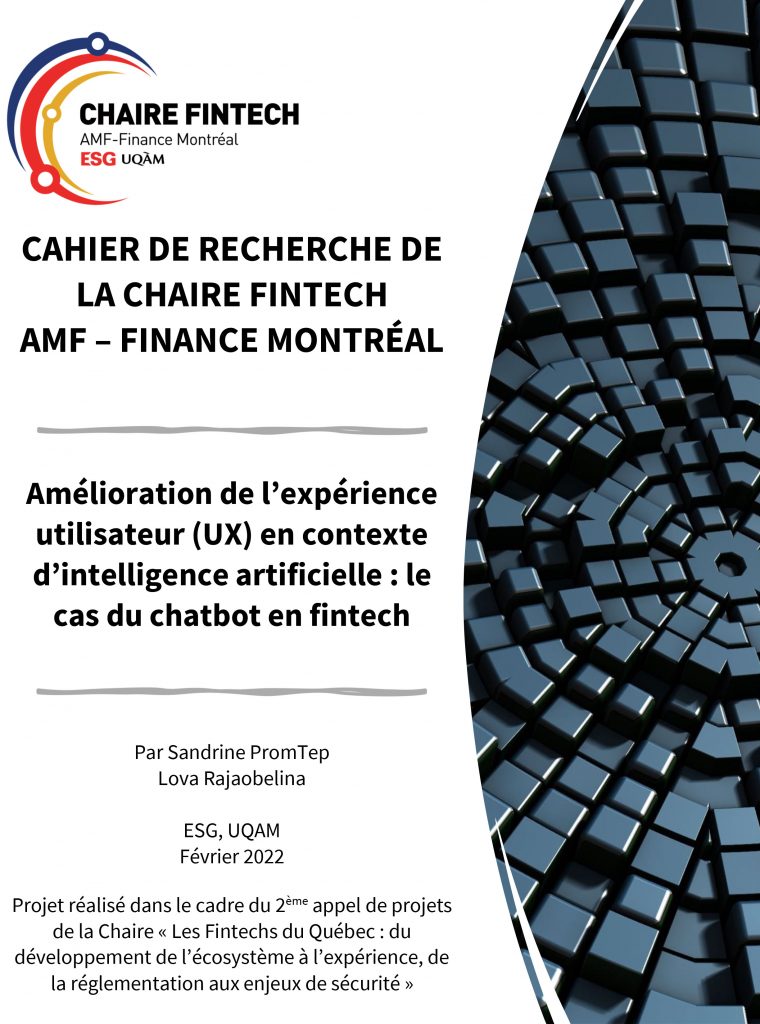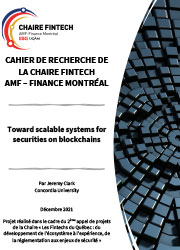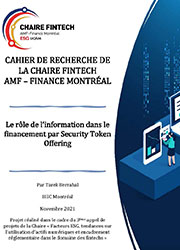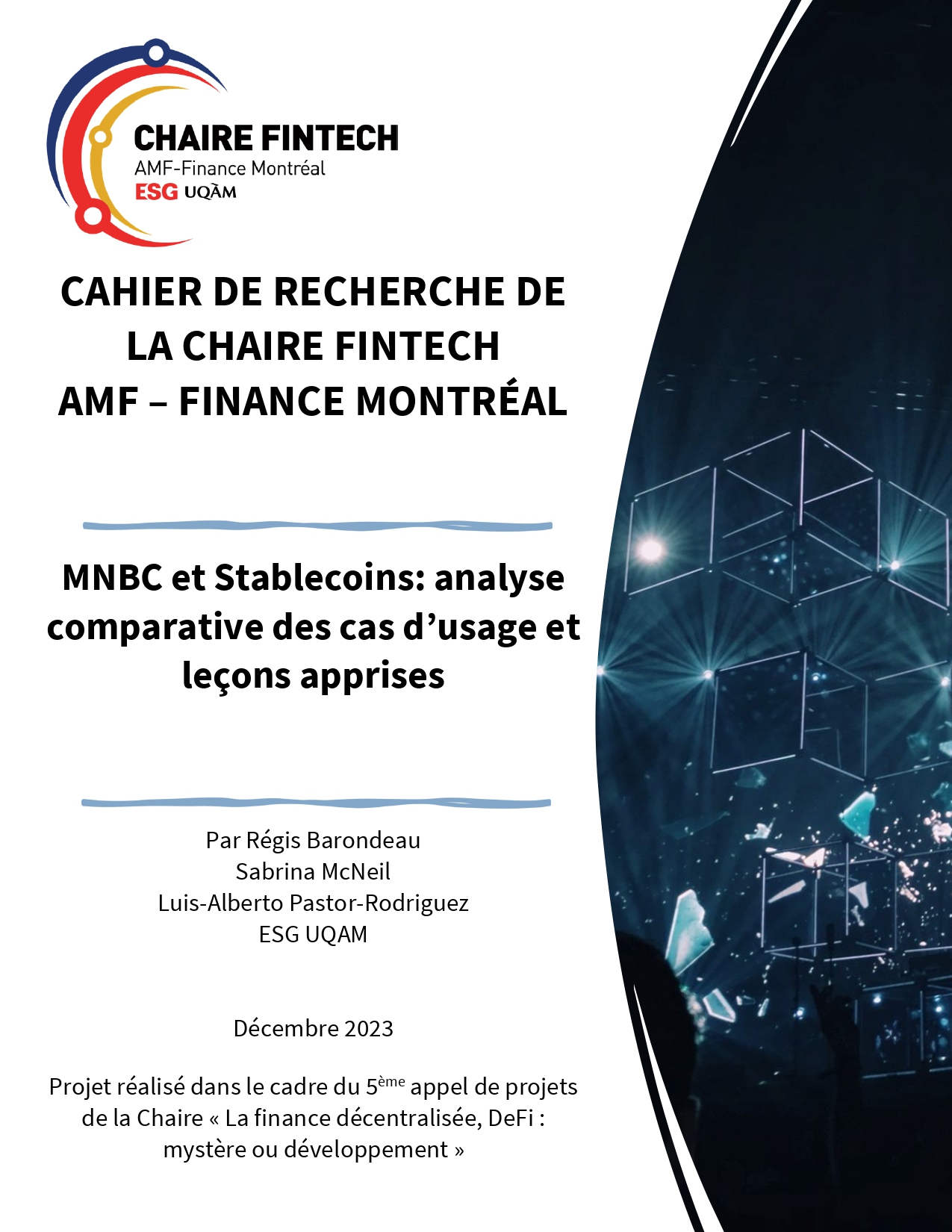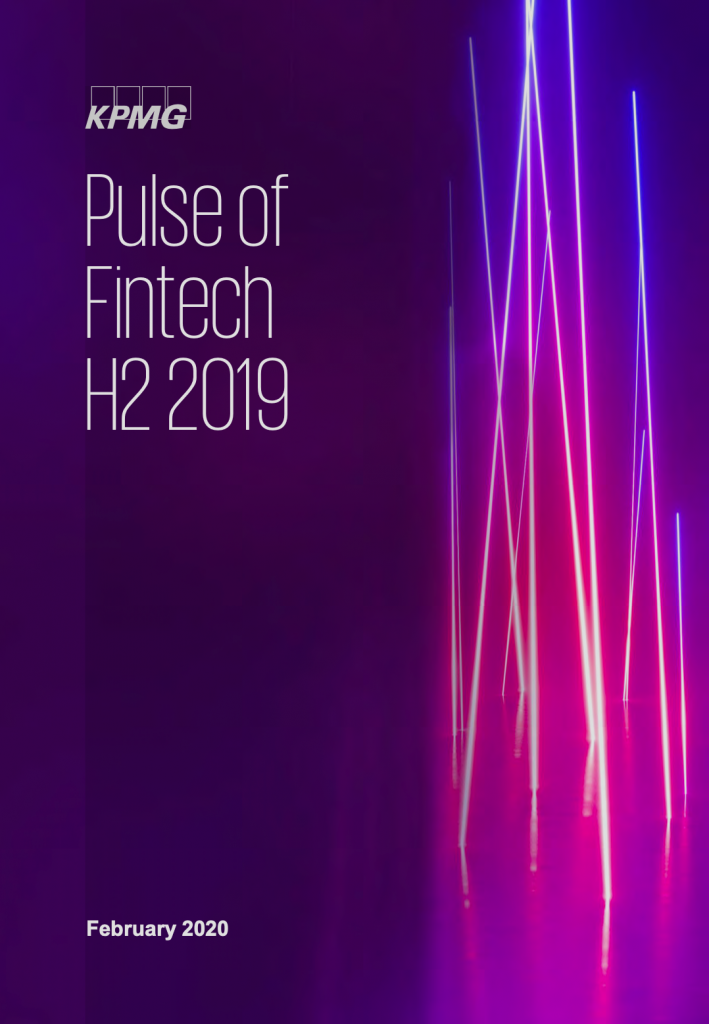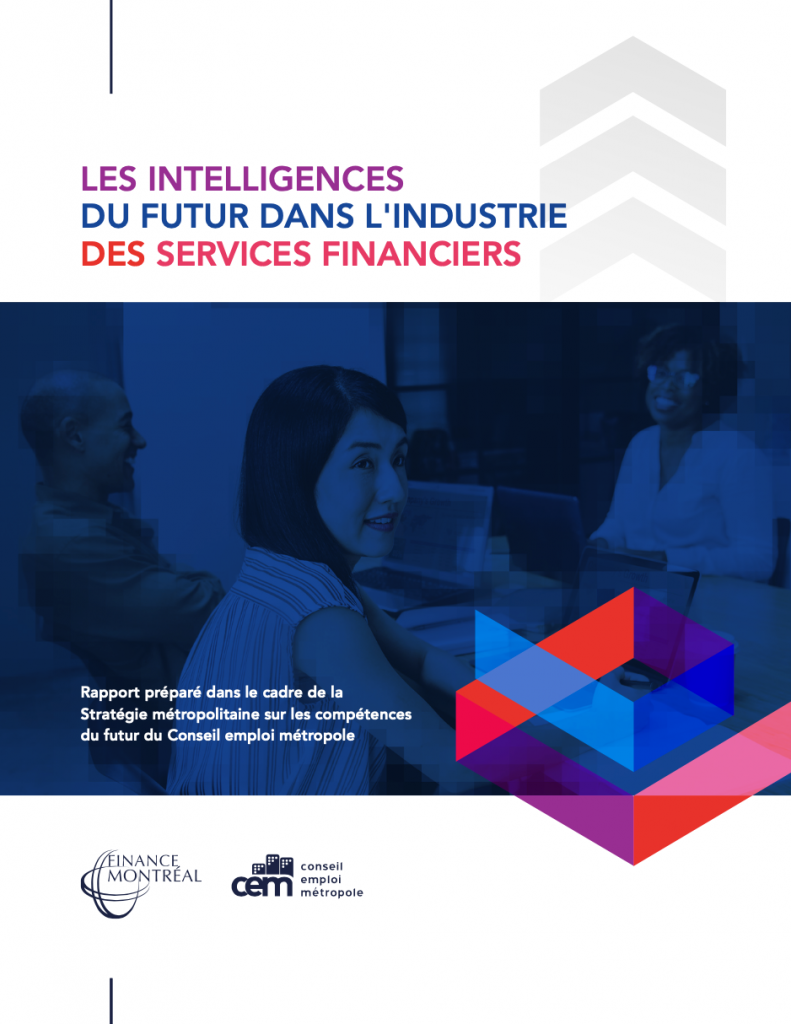Research areas
Area 1: Fintech ecosystem: development and impacts
The objective of this research area’s is to identify the fintech ecosystem development factors and to study the impact of this ecosystem on the financial industry. In the short term, the following topics will be studied: a) the economic and technological determinants of demand (clients’ needs) and firms’ offer operating in the fintech ecosystem; b) to explore new evaluation methodologies of firms in the fintech ecosystem (in particular ones starting their activities) and related risks.


Area 2: Service experience (customer-employee-process)
This second research area aims to review the impact of technological innovations and environmental changes on service experience (clients, employees) as well as on operations/processes. For example, the impact of robots-advisors on customer and financial advisors experience could be studied. Also, it could be of interest to “identify and explore the place and potential of some technologies (e.g. chatbots, chats, gamification) to build awareness and influence young people’s behavior towards saving”. More specifically, it could allow to understand: a) the sensitivity and behavior of young people towards savings and b) the use and perception of “financial” or recreational technologies linked to savings.
Area 3: Legal and regulatory challenges
The use of new technologies for commercial purposes generally showcases an important dilemma. Should it be regulated or not? This third research area will focus on different regulatory approaches and legal questions concerning fintechs. The aim is to bring to light important challenges to assure investors protection, to preserve markets’ integrity and to contribute to the AMF’s mission achievement.


Area 4: Technological development and security issues
This area is cross-cutting to the three previous ones. It aims to analyze and understand which innovations in the fintech ecosystem will influence the financial operations. In a context of exponential rise of computational power and big data, a better understanding of new technologies risks and benefits – such as blockchain, cryptocurrencies, machine learning and other artificial intelligence forms – is necessary to all of the fintech ecosystem actors.
The chair’s studies
Strategic watch reports on fintechs, by Pablo Aceiton, graduate student in information technologies, member of Ramzi Ben Abdallah and Elie Elia’s research team, ESG UQAM)
The chair’s research papers and studies
1st call for projects
2nd call for projects
3rd call for projects
4th call for projects
5th call for projects
6th call for projects
Newsletters – watch and news
2024
Newsletters – watch and news
2023
Newsletters – watch and news
2022
Newsletters – watch and news
2021
2020
Collaborators at the chair
Manon Arcand, professor at the department of marketing, ESG UQAM
David Ardia, professor at the department of decision sciences, HEC Montréal
Patrick Augustin, assistant professor at the department of finance, McGill University
Régis Barondeau, professor at the department of analytics, operations and information technologies, ESG UQAM
Ramzi Ben Abdallah, professor at the department of finance, ESG UQAM
Majdi Ben Selma, professor at the department of strategy, social and environmental responsibility, ESG UQAM
Maya Cachecho, researcher and scientific director of Hub 22 on consumers of financial products and services protection, Centre de recherche en droit public, Université de Montréal
Maya Cara, Senior Teaching Fellow, School of Management at University College London
Hela Chebbi, professor at the department of strategy, social and environmental responsibility, ESG UQAM
Jeremy Clark, associate professor at Concordia Institute for Information Systems Engineering, Concordia University
Nathalie De Marcellis-Warin, professor at the department of mathematics and engineering, Polytechnique Montréal
Lora Dimitrova, Senior Lecturer in Finance, Xfi Center for Finance, University of Exeter
Elie Elia, professor at the department of analytics, operations and information technologies, ESG UQAM
Hsuan Fu, assistant professor at the department of finance, Université Laval
Ruslan Goyenko, professor at the department of finance, McGill University
Vincent Grégoire, professor at the department of finance, HEC Montréal
Haibo Jiang, professor at the department of finance, ESG UQAM
Serge Kablan, professor at the department of management, sciences and administration faculty, Université Laval
Alexie Labouze-Nasica, professor at the department of strategy, social and environmental responsibility, ESG UQAM
Salim Lahmiri, assistant professor at the department of finance, Concordia University
Annie Lecompte, professor at the department of accounting, ESG UQAM
Patrick Mignault, professor at the law faculty, Université de Sherbrooke
Manuel Morales, professor at the department of mathematics and statistics, Université de Montréal
Arthur Oulaï, professor at the law faculty, Université de Sherbrooke
Juliane Prolss, associate professor at the department of finance, Concordia University
Sandrine Prom Tep, professor at the department of marketing, ESG UQAM
Lova Rajaobelina, professor at the department of marketing, ESG UQAM
Line Ricard, professor at the department of marketing, ESG UQAM
Alexandre Roch, professor at the department of finance, ESG UQAM
Stéphane Rousseau, professor at the law faculty, Chairholder of the Chaire en gouvernance et droit des affaires, Université de Montréal
Denis Schweizer, professor at the department of finance, Concordia University
Federico Severino, professor at the department of finance, Université Laval
Ivan Tchotourian, professor at the law faculty, Université Laval
Katrin Tinn, assistant professor at the department of finance, McGill University
Thomas Walker, professor at the department of finance, Concordia University
Thierry Warin, professor at the departement of international affairs, HEC Montréal
Kaiwen Zhang, professor at the department of software and IT engineering, École de Technologie Supérieure (ÉTS)
Xiaozhou Zhou, professor at the department of finance, ESG UQAM










